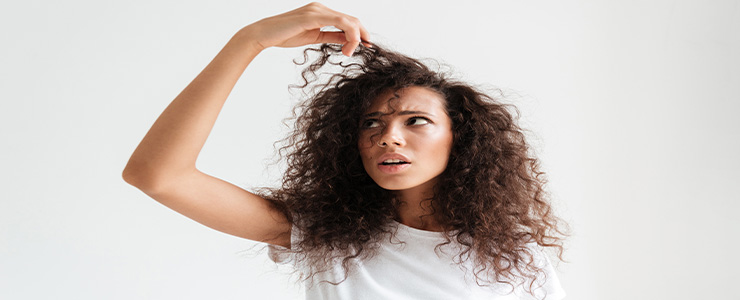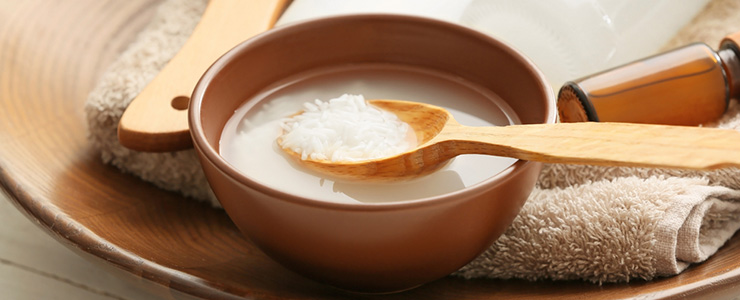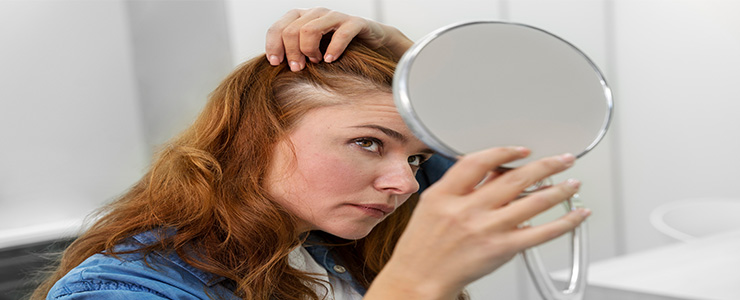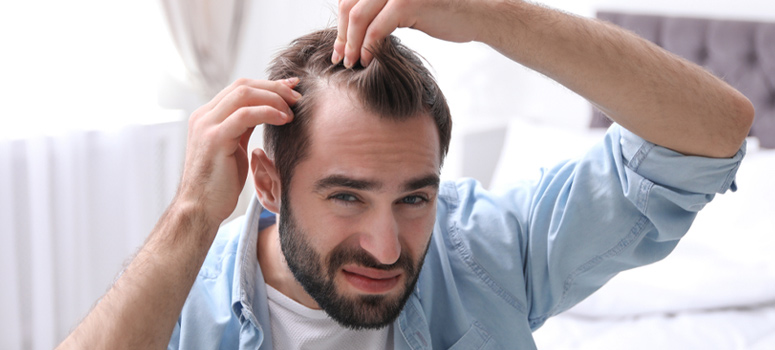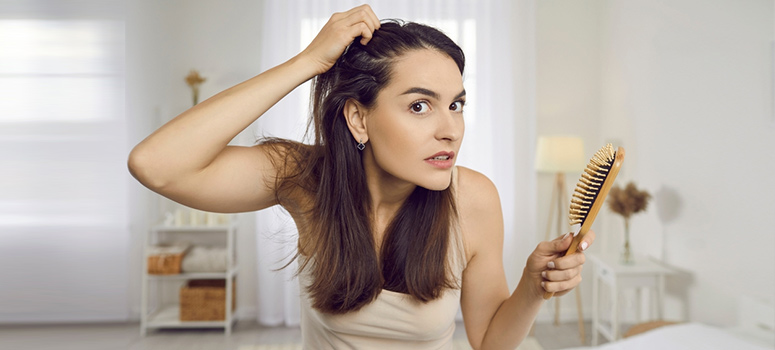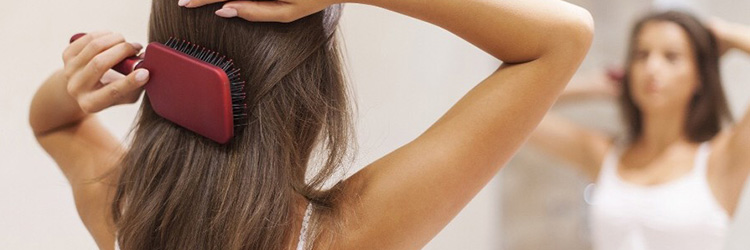For those who want to look well-groomed, frizzy hair can be frustrating. The phrase “how to fix frizzy hair” conveys a universal worry that is held by many people who are battling with this hair problem that makes them look unappealing. In addition, frizz refers to not only what you can see, but also the health of your hair. For example, it can spiral down and indicate that you might have dry hair or damaged locks or hair that is affected by environmental deteriorating factors. Sitting out frizzy hair is not simply all about getting a smooth appearance; it also has a huge factor in the hair’s overall health.
Understanding the Root Causes of Frizzy Hair:
Find out how fix frizzy hair and use targeted methods to get smoother, more manageable hair.
Insufficiency of Wetness
Frizzy hair often results from insufficient moisture. Hair cuticles open when dry, allowing moisture to escape and causing frizz. To combat this, use hydrating shampoos and conditioners, deep-condition regularly, and consider leave-in treatments or oils to maintain optimal moisture levels for smoother, more manageable hair.
Weather and Humidity
The hair absorbs excess moisture from the surroundings when there is high humidity. Climate factors that affect the structure of the hair, including rain or humidity, make frizz worse. To prevent frizz caused by humidity, protective styles, and anti-frizz products can be used.
Cuticles of Hair Damaged
Split ends, and frizz are caused by moisture seeping through a damaged hair cuticle or the outermost part of the hair and entering the shaft. Elements, including heat style, chemical treatments, and environmental stress, may jeopardize the cuticle’s integrity.
Establishing a Frizz-Fighting Hair Care Routine:
Frizz-fighting hair care requires strategy. How to tame frizzy hair? You can start with good-quality shampoos and conditioners. Later, to keep the scalp hydrated, apply a leave-in conditioner or serum and start using wide-tooth combs—Blow-dry with a diffuser on low heat or air-dry. Avoid heat style and preserve hair overnight with silk or satin pillowcases.
Hydration and Moisture:
Choose gentle blotting over forceful towel-drying. Give damp hair a leave-in conditioner or anti-frizz serum, making it softer and easier to manage. A constant hydration practice maintains hair health by balancing moisture.
Protective Styling Techniques:
Safe styling helps keep hair healthy. Braids, twists, and buns protect hair from external stressors and manage manipulation, reducing breakage and frizz. Silk or satin scrunchies and loose hairstyles protect hair and prolong its life.
Heat Styling and Humidity Control:
Management of frizz requires heat styling and humidity management. Focus on heat protectant sprays before style to reduce damage. Reduce heat and styling frequency to retain moisture. Anti-frizz treatments and hairstyles combat humidity for sleek, tamed hair in bad weather.
Product Recommendations for Frizz Management:
Find out how to tame frizz and get smooth hair with these three products.
- Moroccan Oil Treatment: This argan oil-infused treatment for your hair nourishes and conditions it, reduces frizz, and adds shine.
- Living Proof No Frizz Leave-In Conditioner: This lightweight formulation detangles and conditions hair and prevents humidity.
- John Frieda Frizz Ease Extra Strength Serum: This product is widely used to reduce frizz in your hair.
With these products, enjoy lasting frizz control and better styling for healthier, more vibrant hair.
Professional Treatments for Long-Term Frizz Control:
For long-term frizz control, expert treatments can work amazingly. Brazilian Blowouts use keratin protein to smooth the cuticle, decreasing frizz and improving manageability for months. Permanent hair straightening procedures chemically modify hair structure, eliminating frizz. Some of these treatments use harsh chemicals, so consult a professional and consider side effects. Maintaining results requires regular maintenance and sulfate-free products.
FAQ’s
How often should I wash my hair to prevent frizz?
A sulfate-free, hydrating shampoo should be used 2-3 times a week to prevent frizz. Oil loss from overwashing causes dryness and frizz. Use a hydrating conditioner and leave-in treatments to preserve moisture. Maintain natural oils and a clean scalp to reduce frizz.
Are there any natural remedies or DIY treatments for taming frizzy hair?
Yes, natural therapies can control frizz. Natural products like Coconut oil, aloe vera, and apple cider vinegar help smoothen your hair. DIY egg masks and honey-infused conditioners nurture. Regular use reduces frizz and improves hair health.
Can dietary changes or supplements help manage frizzy hair?
After a basic understanding of how fix frizzy hair, we should include diet and vitamins that can help. Diets rich in omega-3s, vitamins, and minerals improve hair health. Fish oil and biotin can strengthen and minimize frizz.
How can I prevent frizz while sleeping?
A silk or satin pillowcase reduces friction and frizz when sleeping. Reduce tangling with a loose bun or braid. To understand how fix frizzy hair while sleeping, use a little leave-in conditioner or anti-frizz serum. Use these evening tips for frizz-free hair in the morning.
The web portal, Find a Dermatologist of Skin and Hair Academy is the way to interact with specialist dermatologists with lots of experience in dealing with hair and skin health problems. Users can look for consultations with a range of experts who can provide tailor-made suggestions and treatments for curls and beauty blunders more easily. Trust in the knowledge of Skin and Hair Academy dermatologists who share personalized advice on treatment options for stronger hair.
https://www.healthline.com/health/beauty-skin-care/what-causes-frizzy-hair
https://www.goodhousekeeping.com/beauty/hair/a28186415/frizzy-hair-tips/
Reasons and quick Fixes to Tame Frizzy Hair and get that beautiful hair
https://www.nexxus.com/us/en/haircare-101/6-causes-and-fixes-for-frizzy-hair/

